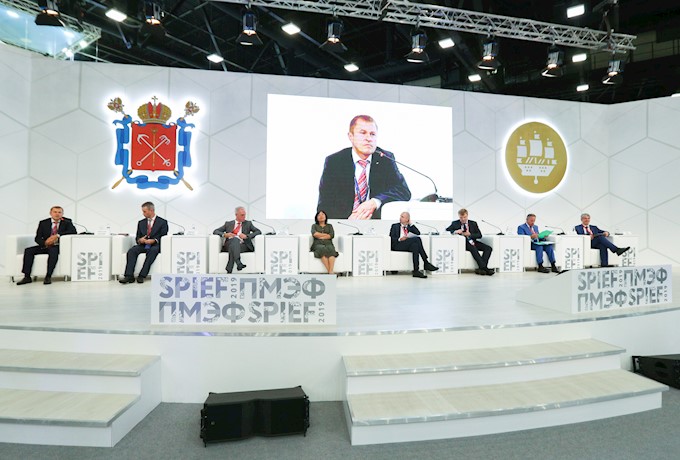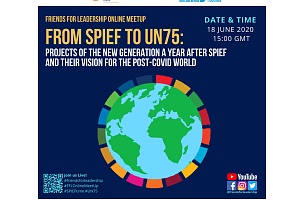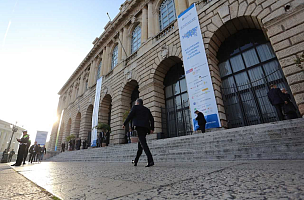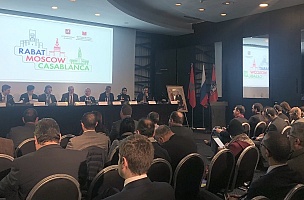The plenary session ‘Engagement in Entrepreneurship: On the Road to Success’ marked the final event of the fifth anniversary Russian Small and Medium-Sized Enterprises Forum (SME Forum), which was held on the opening day of the SPIEF 2019 on 5 June 2019.
In his opening remarks, the session moderator, Alexander Kalinin, President of the All-Russian Non-Governmental Organization of Small and Medium-Sized Businesses Opora Russia, informed the participants that Russian President Vladimir Putin had instructed the Government to develop a definitive action plan – a national project to support small and medium-sized businesses – with the participation of OPORA Russia and other business associations.
“At present, the share of small business is 22% (19 million people). In six years, it should increase to 32% (at least 25 million people)”, Kalinin said.
Dmitry Maksyuta, Founder of Remontologika Architectural and Construction Bureau, shared his experience of starting a business from scratch. He noted the difficulties of obtaining start-up capital without using property as collateral, a lack of repayment holidays, and a lack of knowledge in financial, legal, and personnel affairs. In conclusion, he said that “business completely changes a person’s entire life position”. Kalinin supported the speaker and explained that “only business can teach business”.
Andrey Sharov, Vice President and Head of GR at Sberbank, announced data on global business monitoring for Russia. According to the monitoring, no more than 5% of Russians want to do business, i.e. roughly 4 million people out of the 84 million working age people.
The session moderator added: “According to the Federal Tax Service, the total number of micro, small, and medium-sized businesses increased by 1,900 enterprises (0.03%) from January 2018 to January 2019. Moreover, whereas microbusiness grew by 20,000 enterprises (0.3%), small businesses decreased by 16,500 enterprises (6.0%), and medium-sized business declined by 1,500 enterprises (7.3%). We can see there is no acceleration, so we propose making 2020 the Year of the Entrepreneur”.
Alexander Braverman, CEO and Chairman of the Management Board of SME Corporation, said that “the corporation continues to improve the Business Navigator and create new useful and practical services for small and medium-sized businesses. All types of existing state support for businesses have already been digitized”.
Mikhail Mamuta, Head of the Service for the Protection of Consumer Rights and Ensuring the Availability of Financial Services and Member of the Board of Directors of the Central Bank of the Russian Federation (Bank of Russia), informed the participants that “any entrepreneur that is on the so-called ‘black list’ and whose bank account has been blocked should use the existing rehabilitation mechanism at its bank. The Central Bank of Russia has issued a special ‘training manual’ for entrepreneurs on the rehabilitation procedure”.
Sergei Morozov, Governor of the Ulyanovsk Region, noted in his speech that “the region’s GDP is growing by more than 5% per year and today we face the challenge of learning how to manage the future. The region will test out a new regional governance system through the Integral Office, and the Government will be eliminated. Future entrepreneurs need to be grown and new managers need to be trained for the new governance system. General entrepreneurial education needs to start being provided from high school. The corresponding guidelines were created together with Opora Russia and will be introduced in the region starting from fifth grade by 2022. This project should be extended to all Russian schools”, Morozov said.






